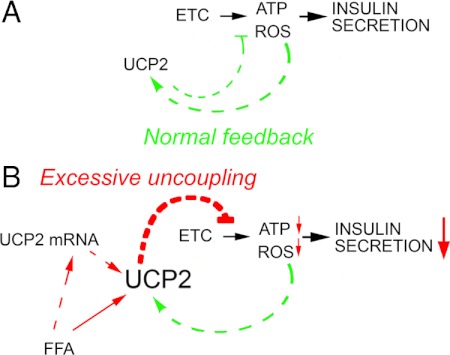Figure 4.
Hypothesized mechanism by which free fatty acid (FFA) excess impairs insulin secretion. A, As described above, the activity of the ETC leads to the synthesis of ATP and the generation of a small amount of ROS. In the β-cell, both ATP and ROS are signals that trigger insulin secretion. Excessive accumulation of ROS is mitigated normally by the activation of UCP2, which dissipates the proton gradient, decreasing both ATP and ROS production. The presence of this normal negative feedback loop suggests that the control of excessive ROS generation is imperative in the β-cell, even if it occurs at the expense of decreasing ATP synthesis. B, In the presence of excess FFA, this normal feedback loop is compromised by a direct activation of UCP2 by FFA, as well as an effect of FFA to increase the amount of UCP2. Thus, uncoupling occurs to an excessive degree, compromising ATP synthesis enough to impair insulin secretion and β-cell fitness.

